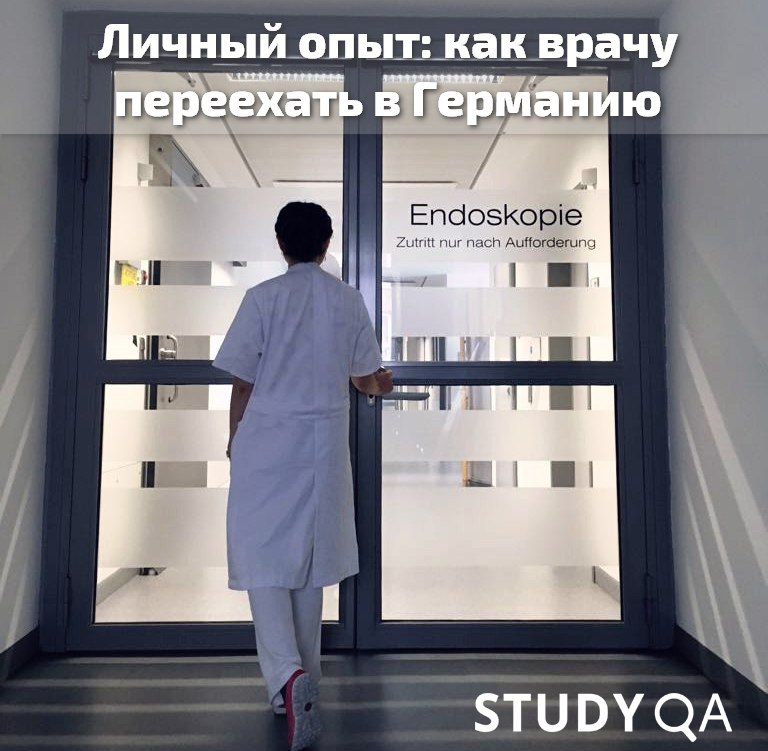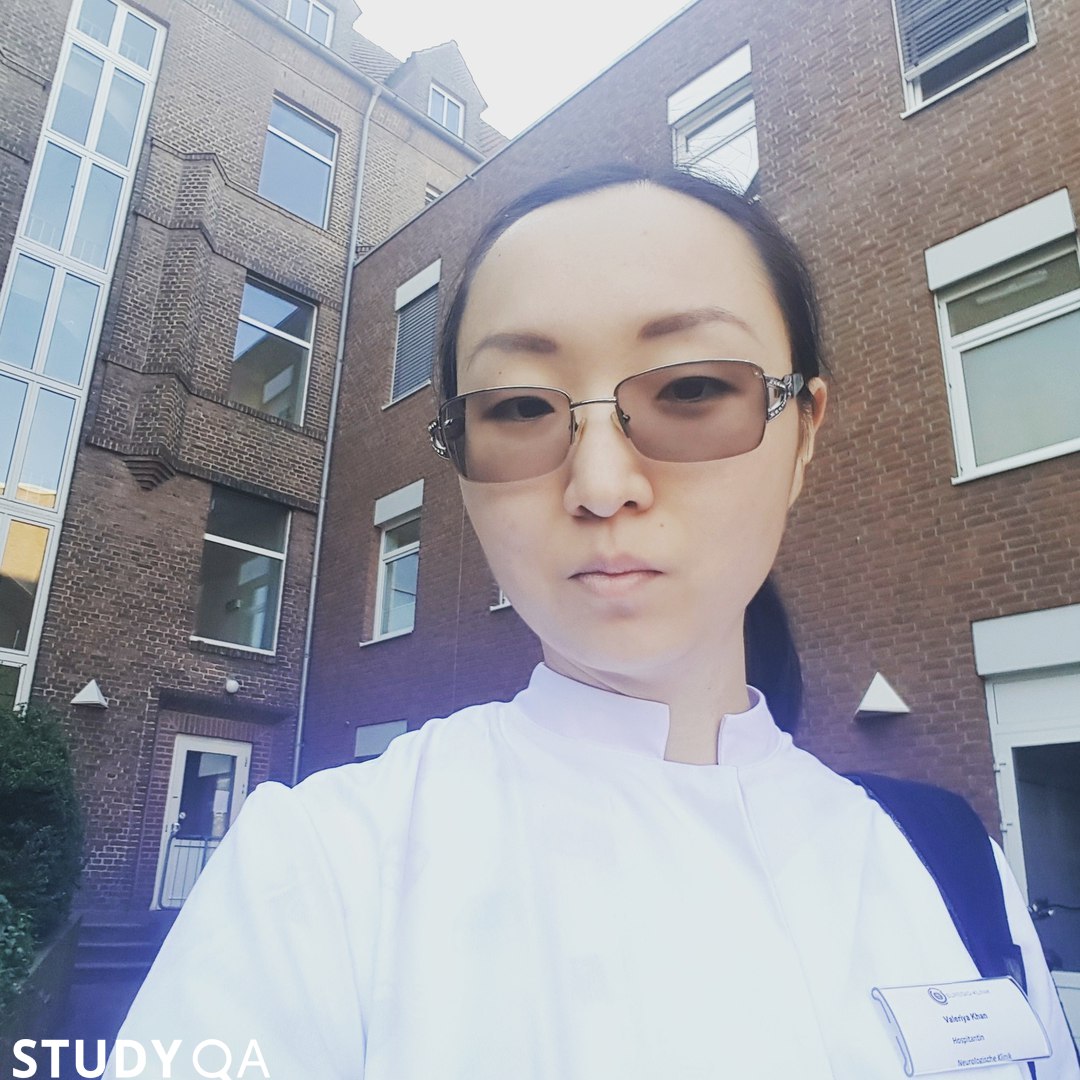Personal experience: how a doctor can move to Germany

Many people believe that looking for a job abroad is a long and practically unfeasible process, and if we are talking about medical personnel, then there are almost no options to find a job.But our today's heroine, Valeria Khan, proved that this is not only not impossible, but also relatively fast.
Valeria graduated from the Kuban State Medical University in 2014, and in August 2017 she received the position of Assistenzärztin at EUREGIO-KLINIK Nordhorn in Germany.
It is important to note that Valeria's experience is applicable only to finding a job for medical personnel, representatives of other specialties may face completely different procedures, requirements and difficulties.
Why did you decide to move abroad and why to Germany?
During the Olympic Games in Sochi, I worked as a translator for an American corporation, and then I decided to start learning a second language.I seriously thought about working in the USA, but moving there as a doctor is associated with very difficult training, my classmate passed all the exams and got a place in New York, and I know what it cost.I stopped in Germany and started learning German right after the games.
How did the preparation for job search and relocation start?
For doctors, fortunately, there is a lot of information in the public domain, mainly blogs of already relocated doctors and communities in social networks.I learned the language and at the same time I was preparing papers: apostille, translations, etc.
How did you manage to confirm your diploma in Germany?What difficulties did you face?
Medical chambers are engaged in the recognition of foreign doctors, each country has its own rules.The main difficulty is the huge queues for exams: the application was submitted at the end of March, and the exam took place at the end of July.All this time, I worked fully in the department, so when I was issued to the place I could immediately take night shifts.
How long did the wholethe process from deciding to leave to getting a job?
In January 2015 I went to a language course for a month, and then I finally decided.In December 2016 I passed C1, since January I was looking for a job, on March 6 I stood in the department in a dressing gown.

How are job interviews in Germany?
You are invited to introduce yourself, the chief and the chiefs are present - two or three senior doctors.They mainly look at language proficiency, it is not accepted to ask professional questions.In my case, it was even easier, since a headhunter found a place for me, and he confirmed his proficiency in the language by sending a resume with a cover letter to the chief.I communicated with him exclusively via Skype, first from Russia, then from Germany.
What, in your opinion, is the main difference between finding a job in Russia and in Germany?
In Germany, for example, LinkedIn is not so widespread.Doctors generally have separate platforms, they are still actively looking for places in the professional magazine Deutsches ärzteblatt.There is also a very big difference between the federal states: both in the requirements for the language and for documents.
How difficult was it to get the Blaue Karte?
She was required to bring a contract, which included a salary, registration at the place of residence and a work permit.Costs 110 euros, ready in 3 weeks.The husband got exactly the same on the reunion.But this was all in August, the most energy-consuming paper is a work permit from the medical ward, it can be obtained only after the exam.Until then, I lived on a job search visa, which is issued for six months, the requirements are the same as for a worker, except for the contract itself.
Tell us what the Russians should learn from the Germans, and vice versa?
Russians need to learn to respect the law, Germans need to learn to be more flexible and adapt better to changing conditions.It is not uncommon for people to havewhen changing the exam schedule - stress - hospital.And so in everything.
What strikes you the most in Germany?
A lot of things.Mainly respect for each individual person, his work and the right to rest, the fight for the quality of life to the last.
Your advice to all those who are just going to look for a job abroad
Start by looking for available information.No need to write to everyone in a row "but how to get rid of?".Trust me, this is annoying.There is a lot of information in open sources, it makes sense to ask only details.If you don’t know how to google, it will also be very difficult for you to adjust in another country.Fear nothing, Russian specialists are no worse than Arab, Albanian and other successfully working.And one more thing: it's never too late.In my department there are "novice" doctors who are over 50.